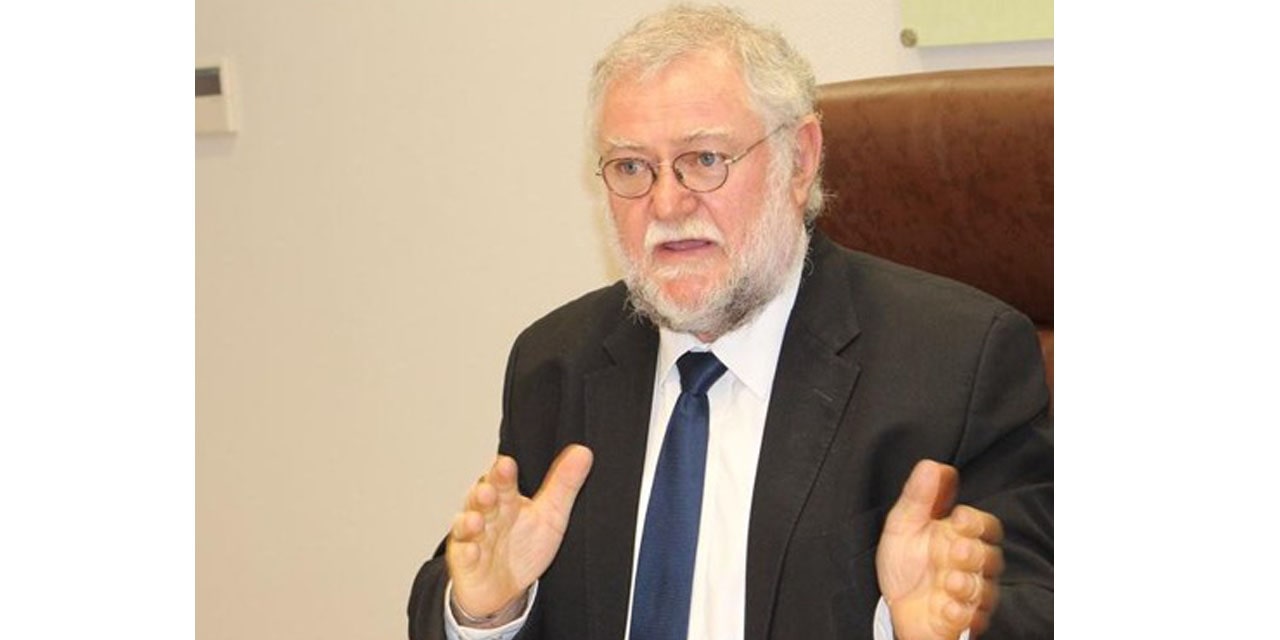Martin Endjala
No Namibian or foreigner can own land under freehold in communal land, The Minister of Agriculture, Water and Land Reform categorically clarified in the National Assembly yesterday.
A visibly disturbed, Carl Schlettwein said that misinformation has been circulating in the public domain about ownership of communal land by foreign nationals, including being fuelled by members of parliament.
He explained that towns and cities within communal land are demarcated and surveyed and after proclamation are no longer part of the communal set-up and property can be owned there.
However, Green Schemes that are also demarcated and proclaimed for agricultural purposes, ‘’still form part of communal land and therefore freehold tile ownership is not possible.
Schlettwein further went on to alert the MPs to Section 102 of the Land Bill which ‘’completely prohibits the ownership of the agricultural (commercial) land by foreigners, which is not the case with the current Agricultural Commercial Land Reform Act, Act No 6 of 1996 now’’.
Furthermore, Section 32 of the Land Bill prohibits the acquisition of customary land rights by foreign national, who cannot enter in any agreement with any person who hold a customary land right without prior approval from the minister.
“What is interesting is that the sponsor deliberately isolated section 32 and section 39 from his writing which deal with Restriction on acquisition of customary land rights by foreign nationals and restriction of lease hold by foreigners respectively,’’ said the minister.
However, the minister pointed out that, there are different rights that can be granted for different land uses in Namibia. These includes the Right of Leaseholds, Customary Land Rights and Occupational Land Rights in case of institutions which offer public service.
Schlettwein stated that investors have transformed the traditionally underutilized State Land at Aussenkehr into immense production, suggesting that this model be replicated to other unproductive lands in the country. ‘’It is for the same purpose the land bill is promoting to unleash the economic potential of the communal areas. It is protecting the land owners, the investment and financiers.’’
The current arrangement in the Communal Land Reform Act under Section 31 stipulate that, any
leasehold below 10 years with a land size below 100 hectares can be approved by a particular Communal Land Board in the regions. However, leases which exceed 10 years and the land size involved is above 100 hectares are recommended by the Boards to the Minister for approval.
“However, I must emphasize here that, it is not and has never been the practice of government to impose leaseholds and foreign investors upon local communities on communal land,” Shlettwein explained, and that in all cases, Traditional Authorities are the main drivers by exercising their power of primary land allocation.
The current Land Bill is trying to ensure that foreigners be allowed to partner with Namibian citizens to unleash the potential in the communal areas, in the lease environment that protect both the citizen, investor and the financier. The Bill is trying to attract banks to be able to invest in the communal areas the minister determined. The minister, appealed to Parliamentarians and the general public to ensure that they verify facts themselves instead of relying on their political or spiritual Messiahs to interpret things on their behalf.
The minister also express concern over the reporting ethics of some media houses which opted to publish unauthenticated information to the public for the purpose only known to themselves.
This type of reporting, Schlettwein said is tantamount to ‘’public incitement on sensitive matters such as land redistribution and ownership [and] is uncalled for’’.




